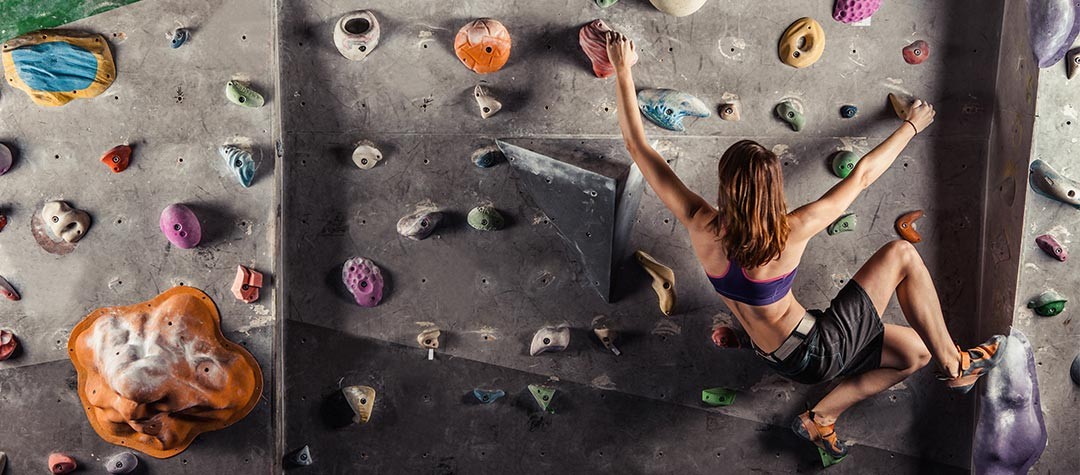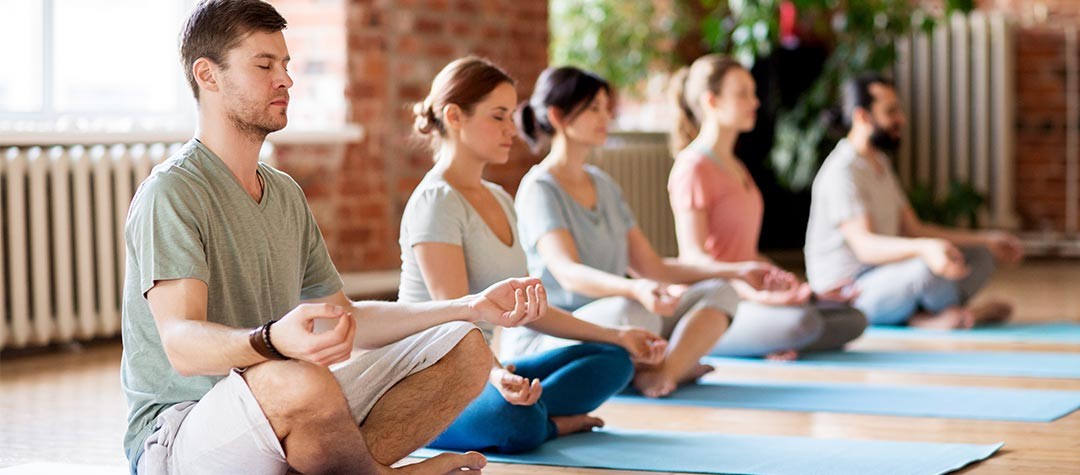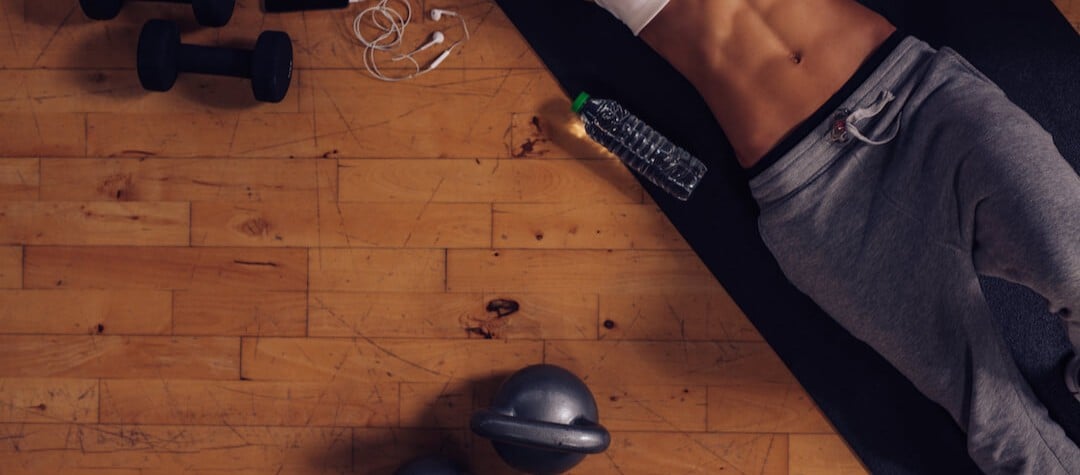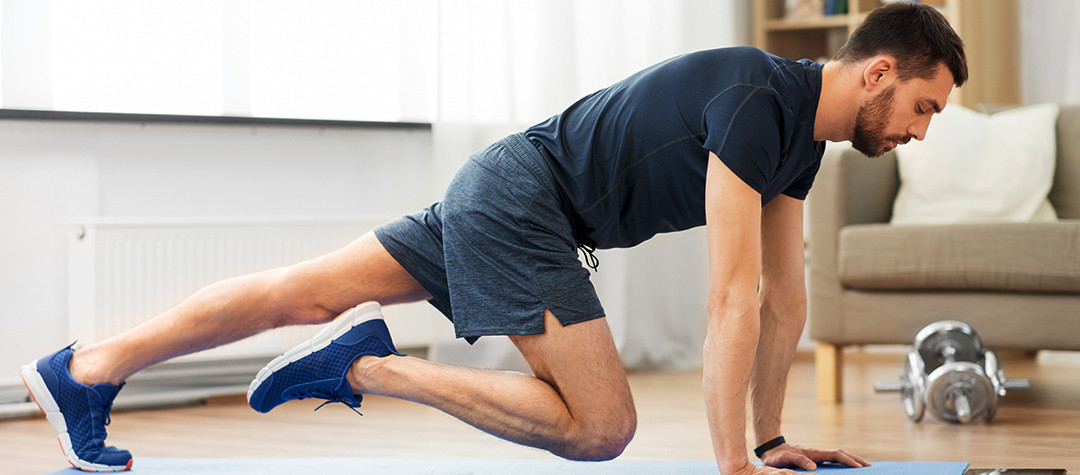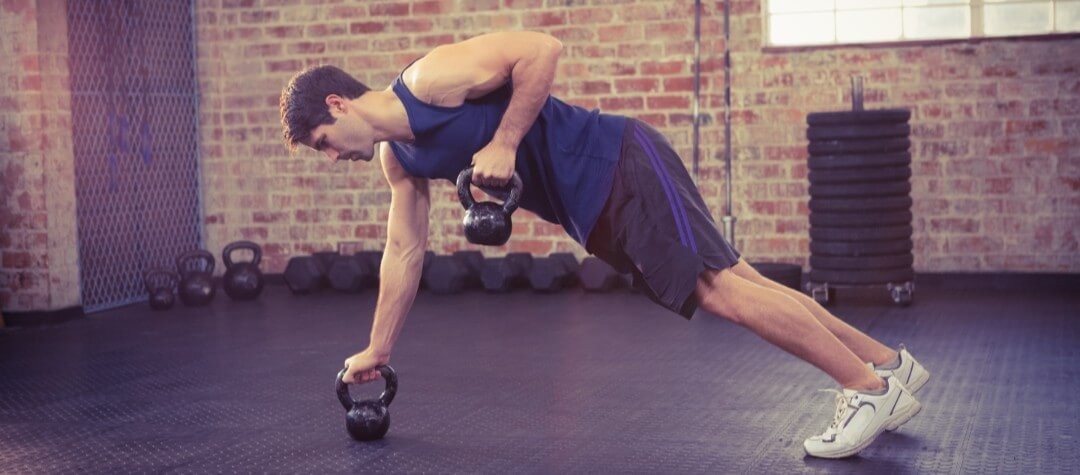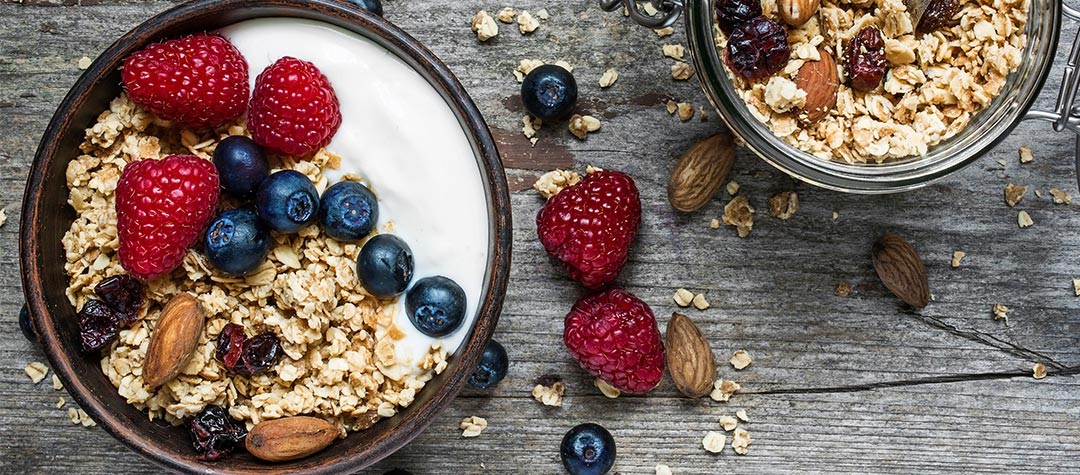For some, rainy days are the perfect excuse to hang up the running shoes and cozy up on the sofa until the sun reappears. Don’t let your fitness decline as a result of poor weather - there are so many fun alternative workouts, like these 10.
1. Indoor climbing walls
What are the fitness benefits of indoor climbing?
Climbing is a demanding activity, requiring a blend of strength (particularly in the upper body), flexibility (for stretching to reach those almost-out-of-reach holds) and cardiovascular (CV) fitness.
An activity-specific bad-weather workout
Try a session where you challenge yourself to complete a series of ascents within a specific time limit. The climb is your quality training element, while the descent can be your recovery. It’s interval training with a rope!
Workout hints and tips
Ensure that you’re well warmed up before you begin, because then you’ll be more flexible - which is a key factor in successful climbing.
2. Ice skating
What are the fitness benefits of ice skating?
Initially, improvements in balance and proprioception (the sense of where you and your body are in space). Once you are more competent, a good degree of CV fitness can also be gained from ice skating.
An activity-specific bad-weather workout
If you are a novice, focus on balance and control. Activating your core muscles (the deep postural muscles all around your torso) will be extremely beneficial. If you can already skate, then pick a quiet time at the rink and skate continuously for a good CV session.
Workout hints and tips
To get the most CV benefits, avoid gliding for long stretches and instead focus on more complicated moves that involve turning and changing direction.
3. Team sports
What are the fitness benefits of team sports?
Team games are usually fast-paced, intensive activities, so you are likely to get an excellent CV workout together with some shorter-distance sprint training.
An activity-specific bad-weather workout
Treat a game as a quality interval training session comprising bursts of effort separated by jogging recoveries - which will help both your CV fitness and your basic speed.
Workout hints and tips
Omitting a warm-up is common with team sports and, because of the explosive nature of the activity, is one of the reasons that muscle strains are so common. To make sure that you don’t get sidelined, ensure that you complete a good warm-up before you start. Also, if the game is very one-sided and you are not involved very much, make sure that you keep warm by continually jogging and getting some CV benefits.
4. Racket sports
What are the fitness benefits of racket sports?
Speed, coordination and stamina are the key benefits you’ll get as you work around the court.
An activity-specific bad-weather workout
The game itself will dictate the tempo and type of session - so look to follow the pattern of the match, keeping up on your toes throughout each point. By doing this you will enhance your speed and balance.
Workout hints and tips
If you are unused to indoor racket sports, you may find that the continual driving down of your leading foot becomes increasingly uncomfortable and can actually lead to blisters. Ensure that you have correct and suitable well-fitting footwear (including socks) to prevent problems.
5. Martial arts
What are the health and fitness benefits of martial arts?
Improved speed, coordination and strength are the key benefits. Flexibility and stamina are also important as you grapple with an opponent, and these will develop the more you train.
An activity-specific bad-weather workout
A typical martial arts session will only include a small amount of sparring, while the majority of the workout will focus on drills, exercises and practicing specific moves. This combination-type training provides an excellent, balanced, all-round workout - plus if the session finishes with some sparring then you’ll get a short interval session as well.
Workout hints and tips
It takes many years to become proficient at martial arts, and some of the exercises involved can be extremely demanding upon the body. So, make sure that you exercise at your own level and avoid getting over-competitive if you are unused to the sport.
6. Fencing
What are the fitness benefits of fencing?
Speed, coordination, agility and stamina are the benefits you will get from fencing , together with good leg strength because much of a typical bout involves very rapid squatting and lunging movements.
An activity-specific bad-weather workout
Start with a thorough warm-up and then try to complete several back-to-back bouts. This way you will be getting a good CV workout - plus the short, rapid movements will have the same effect as a high-quality interval training session.
Workout hints and tips
Focus on leg strength so that you have sufficient local muscular endurance to be able to sustain correct technique throughout each bout.
7. Trampolining
What are the fitness benefits of trampolining?
Strength, coordination, agility and stamina will all be developed when trampolining. All of these will also support any outdoor training sessions that you do.
An activity-specific bad-weather workout
If possible, look to work out on the trampoline for extended periods, as opposed to stop-start practicing of specific moves and drills. This is because the continuous exercise will more closely replicate CV activity and will focus on leg strength.
Workout hints and tips
Always follow a trampoline session by stretching all the major muscles of the legs, just as you would after a running or cycling session.
8. Skiing and snowboarding
What are the fitness benefits of skiing and snowboarding?
Indoor alpine sports such as skiing and snowboarding provide the lot: improved strength, coordination, agility, core strength, stamina and flexibility. They are both highly demanding sports!
An activity-specific bad-weather workout
Stay on your feet as long as possible! Rather than attempting fancy tricks and turns, look to maximise your time on the slopes so that you get a continuous workout.
Workout hints and tips
Skiing and snowboarding are both challenging activities that place considerable demands on lower-leg flexibility - particularly the calves. So, focus on regular calf and Achilles tendon stretching to avoid the risk of injury.
9. Boxing
What are the fitness benefits of boxing?
Boxing is a risky yet increasingly popular activity that provides an extremely high level of cardio fitness, agility, speed and (mainly upper body) strength.
An activity-specific bad-weather workout
Rather than risk injury during a bout in the ring, focus on boxing training - which can involve occasional sparring but also involves plenty of speedball and heavy bag work. This will provide you with a fantastic workout!
Workout hints and tips
You will need to pace yourself in order to get the most out of your boxing session, because you will be using smaller muscle groups (the arms and shoulders), which tend to tire rapidly. Allow sufficient recovery periods between heavy work so that you can maintain the quality throughout your session.
10. Exercise classes
What are the fitness benefits of exercise classes?
Each type of exercise class brings its own specific benefits, so you should be able to select a class that caters for whatever element of fitness you are looking for and will support your usual training.
An activity-specific bad-weather workout
If you usually enjoy a good-quality cardio session outdoors, than a faster-paced aerobics or circuit-type session will give you CV benefits and also provide valuable all-over body training that will enhance your all-round strength.
Workout hints and tips
If you opt for a circuit class, concentrate your cool-down flexibility exercises on the muscle groups that you don’t usually utilise in your outdoor sessions, as it is these muscles that will benefit most from their ‘wake-up call’. Stretching will also help to reduce any post-exercise soreness.
Weather and exercise
A spell of bad weather that limits your outdoor training opportunities could actually be a blessing in disguise, because your choice of alternative exercise could actually improve your performance in your chosen outdoor sport by strengthening areas that are normally neglected. The change will also keep your workouts varied and interesting. If you gain greater all-round strength then you will be less likely to suffer an injury - and that means longevity in your number-one sport. So bad weather might not be a bad thing after all.

